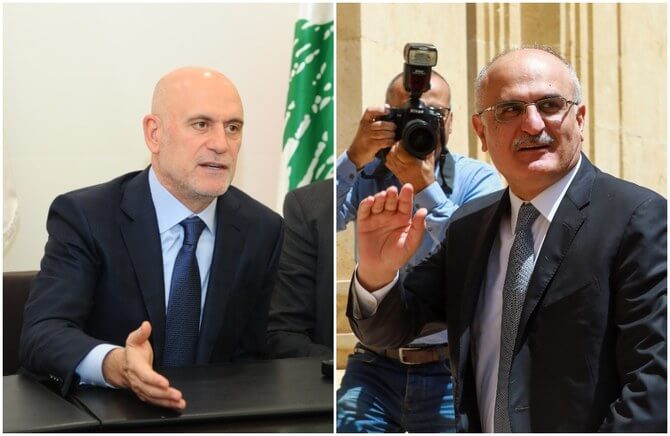On Tuesday, Washington increased its sanctions on Lebanon by blacklisting two of its government’s ex-ministers, accusing them of links with the Iran-backed Shi’ite militia, Hezbollah. The United States (US) also warned that it plans to target the group through “more actions” that will come soon.
In an official statement, the US Treasury Department accused Lebanon’s former Finance Minister Ali Hassan Khalil and ex-Transport Minister Yusuf Finyanus of providing financial and material support to Hezbollah members and sanctioned the former leaders for their corrupt engagements and misuse of political power for financial benefit. “These designations underscore how some Lebanese politicians have conspired with Hezbollah at the expense of the Lebanese people and institutions. The United States supports the Lebanese people in their calls for a transparent and accountable government free of corruption,” the statement reads.
Finyanus, in particular, has been accused of accepting “hundreds of thousands of dollars in exchange for political favours” for the militant group, which the US recognizes as a terrorist organization. Khalil, on the other hand, has been sanctioned for allegedly misusing his power as the country’s finance chief by siphoning official budget funds to ensure that firms owned by the group would win government contract bids. Further, Khalil has also been accused of allowing the Hezbollah to evade taxes and move money freely, which helped the group avoid US sanctions. The sanctions freeze American assets held by the blacklisted persons and generally prohibit American individuals and businesses from engaging in transactions with them. Those who continue their dealings with the erstwhile officials also face the risk of being slapped with secondary sanctions.
US Secretary of State Mike Pompeo welcomed the move, saying, “Anyone helping to advance Hezbollah’s political or economic interests is further eroding what remains of effective governance and facilitating financing for terrorism.” Assistant Secretary of State David Schenker said that Lebanon should anticipate more anti-corruption sanctions from the US as the country struggles to deal with its worst-ever economic crisis, increasing public frustration, and the aftermath of the massive blast that rocked Beirut’s port district. Following the assassination of former Prime Minister Rafik Hariri, Hezbollah has emerged as an overarching political power with governmental representation.
The 4 August explosion of 2,750 tonnes of dangerously-stored ammonium nitrate, which killed around 190 people and injured over 6,000, exposed glaring faultlines in the country’s administrative capabilities, bringing to light blatant negligence by incumbent authorities. On 10 August, as public anger grew, the country’s Prime Minister Hassan Diab announced the resignation of his government.
US officials have also indicated that Washington is working in tandem with Paris to help rebuild the Mediterranean country’s political structure, but have also criticized French President Emmanuel Macron for engaging in talks with Lebanese politicians, including a Hezbollah member of parliament. The Middle East Institute’s Randa Slim said that the sanctions send a ”strong message” towards Khalil and Finyanus’ political affiliates, such as House Speaker Nabih Berri and Suleiman Franjieh, a parliamentarian, to create real and systemic political reforms.
Former Lebanese Ministers Blacklisted by US over Hezbollah Ties
The sanctions freeze the ex-leaders’ American assets and bar them from conducting any transactions with Americans
September 9, 2020

Lebanon’s Former Transport Minister Yusuf Finyanus (L) and Finance Minister Ali Hassan Khalil (R) are now facing American sanctions. SOURCE: ARAB NEWS
